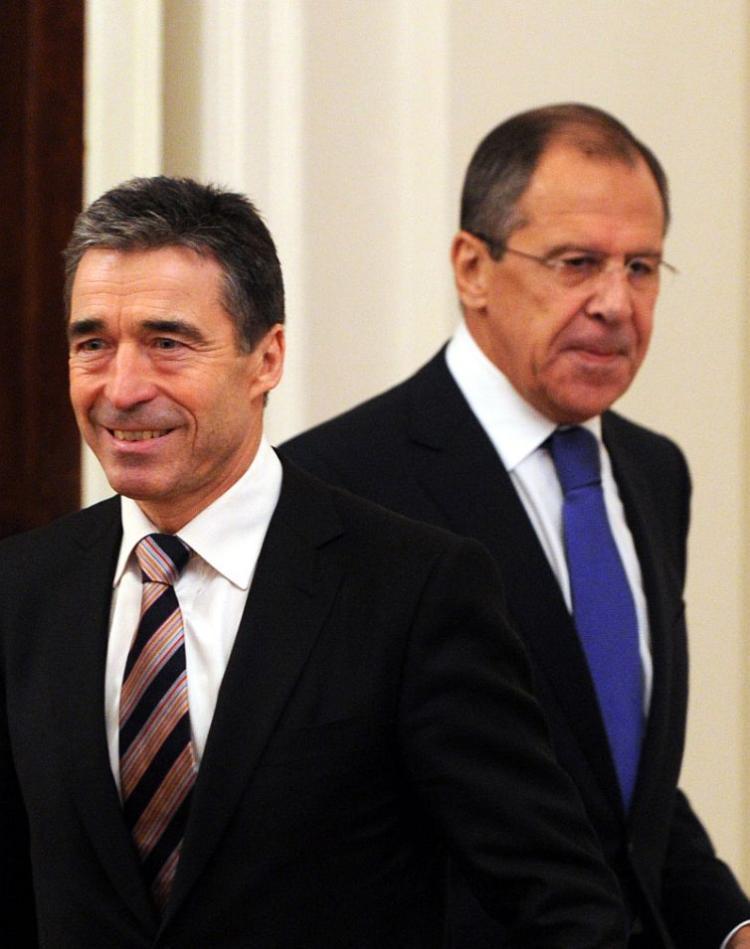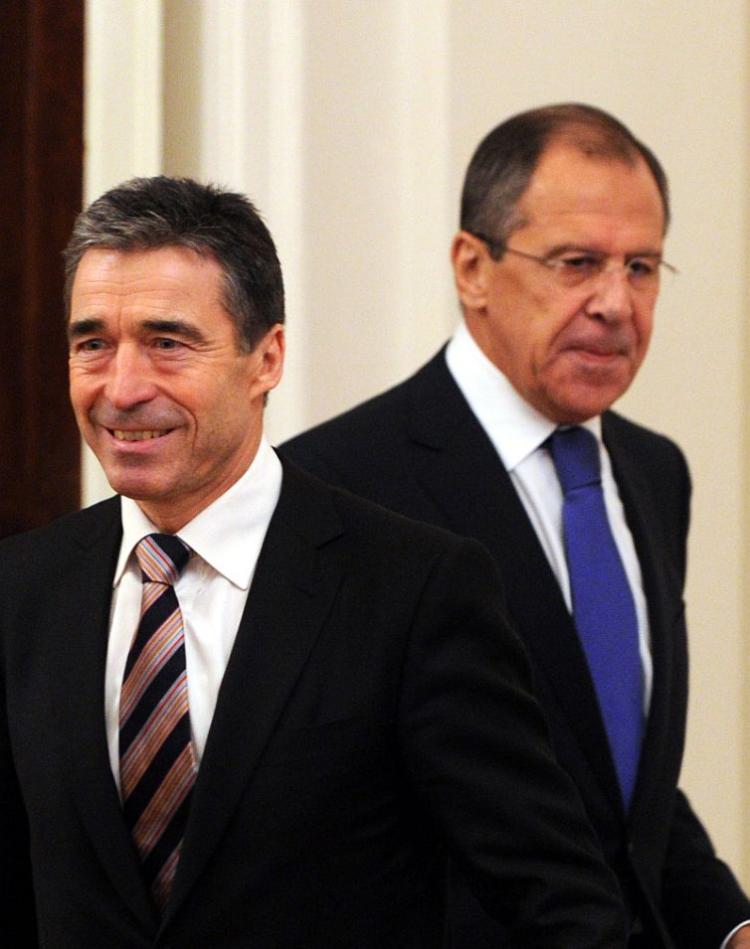Strange Bedfellows: NATO and Russia Broach Talks on Alliance
An upcoming NATO summit, scheduled for November 19th and 20th, will determine whether the world considers the Russian Federation a friend, or foe with regard to global peace.

NEW REALITIES: Russian Foreign Minister Sergei Lavrov (R) meets visiting NATO Secretary-General Anders Fogh Rasmussen (L) of Denmark, in Moscow, on Nov. 3. The leaders of the Western military alliance are due to meet Nov. 19-20 in Lisbon, Portugal. Dmitry Kostyukov/AFP/Getty Images
|Updated:





